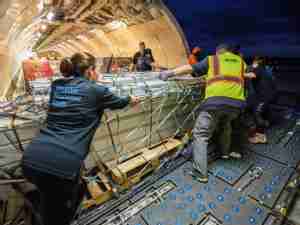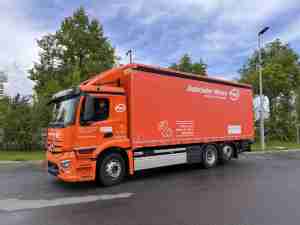Forwarders are a tough, resourceful, and flexible breed. When I entered the logistics business almost 30 years ago to join DHX-Dependable Hawaiian Express, forwarders originated about 90 per cent of all domestic and international "hard", i.e. over 50 lb. air freight. Primarily because of this flexibility and loyalty to our customers, forwarders still transport this amazingly high percentage of cargo throughout the world.
Moving a customer's shipment with speed, preciseness and accuracy, whether 100 miles to the next city or 10,000 miles across an ocean was the name of the game thirty years ago. These goals remain the same, yet under enormously different circumstances.
New challenges make it imperative that the logistics provider remains neither complacent nor relaxed. We face the reality of new global conditions; an environment where security considerations are paramount, where once automatic growth in revenues and number of shipments have flattened or even receded, and with the relentless march of technology accelerating.
These challenges go to the heart of the forwarder-shipper relationship. Current challenges often create difficulties in fulfilling customers' requests. There are steps, however, that the experienced, knowledgeable forwarder can take to minimize these problems.
Security concerns today are foremost on the minds of everyone involved in international transportation. Many questions must be answered. Are we keeping up with the seemingly endless changes in security regulations handed down by the Transportation Security Administration? What about security measures at destination nations to which our customers' cargo is consigned? Or of similar concerns at origin for US importers? Are other nations' customs clearance and security measures up to the task in a world where terrorism can strike anywhere? Most importantly, is the forwarder--acting for the shipper--aware of and responding to these challenges?
Fulfilling a customer's needs requires careful, accurate and rapid information. In today's logistics environment, information about a shipment has become as important as the shipment itself. The successful forwarder will provide this vitally needed information accurately, rapidly and in a user friendly manner.
While yesterday's freight forwarder has become the logistics provider of today, we have not lost an essential aspect of our business--adaptability. This ability to respond to fast-changing conditions has in the past, and remains today, one of our most valuable assets.
In this rapidly changing environment, today's customer demands a wide variety of services by his transportation agent. Here are just a few of these services:
* Know-how: Know-how is an old fashioned phrase, but most accurately describes a forwarder's skill and knowledge. Know-how, or practical experience, is developed only after years of being immersed in the world of international transportation. At DHX-Dependable Hawaiian Express, for example, we have been serving customers for 27 years. Our sister divisions; Dependable Global Express (DGX) and Dependable AirCargo Express (DAX) also have been active for a number of years.
* Company network facilities: A worldwide company owned and operated network of facilities is important. Equally important are skilled, experienced personnel at these offices who are equally adept in handling both inbound and outbound freight. Company network offices should have established relationships with reliable shipping lines and air carriers for international shipments, trucking companies and railroads for domestic traffic. It also means access to adequate warehousing and distribution facilities.
* International trade proficiency: There is nothing simple today about moving goods into and out of the US Transporting cargo abroad mandates a detailed knowledge of shipping requirements and documentation. Documentation must be completely accurate, down to the last period and comma on the manife









